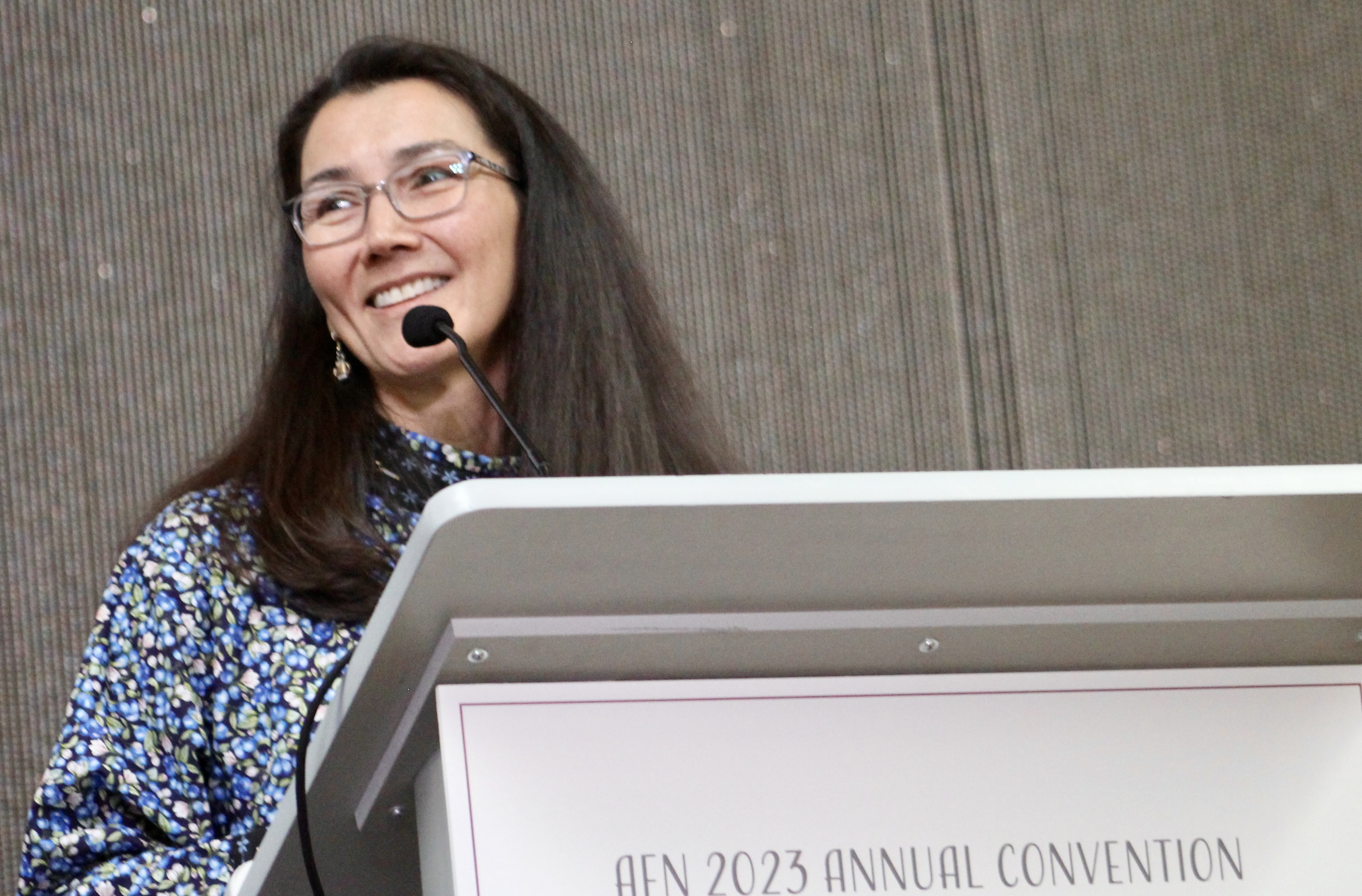
- Details
- By Native News Online Staff
As a candidate, Rep. Mary Peltola (D-AK), the first Alaska Native ever elected to Congress, ran as a “pro-fish” candidate. Now, she is in Congress, Peltola, with U.S. Representatives Garret Graves (R-LA), Derek Kilmer (D-WA), Rob Wittman (R-VA) have launched the bipartisan American Seafood Caucus.
The purpose of the caucus is to provide a forum for seafood policy champions to find common ground and ensure that healthy, domestically produced, seafood doesn’t take a backseat to foreign products that often don’t uphold our quality and sustainability standards, or may be illegally subsidized by foreign governments.
The federal government should treat seafood as a priority to maintain the health and productivity of our oceans, according to Peltola.
"American and Alaskan seafood feeds millions at home and around the world," Peltola said. "It is nutritious, sustainable, and among the highest quality in the world. It is as important to our food system as other agricultural products. Right now, Russia and China are pursuing exploitative trawling that is damaging our fisheries and processing that is flooding the global market with environmentally harmful, unethically produced seafood. America needs a national strategy to respond and protect our domestic fishermen. I am proud to co-found this bipartisan caucus and help lead the way for all of America's oceans."
The inaugural co-chairs represent the United States’s four major coastlines and intend to involve a diverse membership from different regions of the country. The caucus reaffirms the members’ commitment to ensuring American seafood and our fishing communities have a level playing field in both the global and domestic markets.
The following organizations are in support of the newly formed caucus: Alaska Seafood Marketing Institute, Louisiana Shrimp Association, Gulf Shellfish Farmers Association, Taylor Shellfish Farms, Pacific Seafood Processors Association, Hama Hama Oysters, Virginia Seafood, and Shellfish Growers of Virginia.
More Stories Like This
Native News Weekly (August 25, 2024): D.C. BriefsUS Presidents in Their Own Words Concerning American Indians
Native News Weekly (January 18, 2026): D.C. Briefs
Federal Judge Orders ICE to Halt Use of Pepper Spray, Arrests of Peaceful Protesters in Twin Cities
Tunica-Biloxi Cultural Leader John D. Barbry Walks On
Help us defend tribal sovereignty.
At Native News Online, our mission is rooted in telling the stories that strengthen sovereignty and uplift Indigenous voices — not just at year’s end, but every single day.
Because of your generosity last year, we were able to keep our reporters on the ground in tribal communities, at national gatherings and in the halls of Congress — covering the issues that matter most to Indian Country: sovereignty, culture, education, health and economic opportunity.
That support sustained us through a tough year in 2025. Now, as we look to the year ahead, we need your help right now to ensure warrior journalism remains strong — reporting that defends tribal sovereignty, amplifies Native truth, and holds power accountable.
 The stakes couldn't be higher. Your support keeps Native voices heard, Native stories told and Native sovereignty defended.
The stakes couldn't be higher. Your support keeps Native voices heard, Native stories told and Native sovereignty defended.
Stand with Warrior Journalism today.
Levi Rickert (Potawatomi), Editor & Publisher


